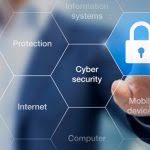Kansas State University hit by cyber attack, impacting students and faculty.
The Kansas State University (KSU) community was met with an unexpected and troubling announcement that the university was experiencing a disruption to certain network systems due to a cyber attack. This news sparked concern and uncertainty among students, faculty, and staff as they wondered about the extent of the attack and its potential impact on their daily operations.
The affected systems included the Virtual Private Network (VPN), some email services, and videos hosted on KSU’s network. These are crucial tools for students and faculty, especially where remote learning and work have become the norm. The disruption of these systems meant limited access to course materials, communication platforms, and other important resources.
The university’s response to the cyber attack was swift and transparent and assured the community that they were working diligently to address the issue and restore the affected systems as soon as possible. They also encouraged students, faculty, and staff to be cautious and vigilant with their emails and other online activities to prevent further damage.
As the investigation into the attack continues, many are left wondering about the motives behind it. Cyber attacks on universities are not uncommon, and they are often carried out by individuals or groups seeking personal gain or to make a statement. Regardless of the perpetrator’s intentions, the impact of such attacks can be far-reaching and disruptive, causing financial and reputational damage to the targeted institution.
In light of this incident, it is important to recognize the critical role that cybersecurity plays in today’s digital world. Universities, like many other organizations, are increasingly reliant on technology and data, making them vulnerable targets for cyber attacks. It is imperative for institutions to invest in robust cybersecurity measures to protect their networks and the sensitive information of their students and employees.
Additionally, it is crucial for individuals to be aware of the potential risks and take necessary precautions to safeguard their personal information. This includes using strong and unique passwords, being cautious of suspicious emails or links, and regularly updating software and security systems.
As the situation at KSU unfolds, it serves as a reminder that cyber attacks can happen to anyone at any time. It is a wake-up call for universities and individuals to prioritize cybersecurity and take necessary steps to prevent and mitigate the impact of such attacks.
In conclusion, the cyber attack on Kansas State University serves as a cautionary tale for the entire community. It highlights the need for constant vigilance and proactive measures to protect against potential cyber threats. As we navigate through an increasingly digital world, it is crucial for individuals and institutions to prioritize cybersecurity to ensure the safety and security of our data and networks.







